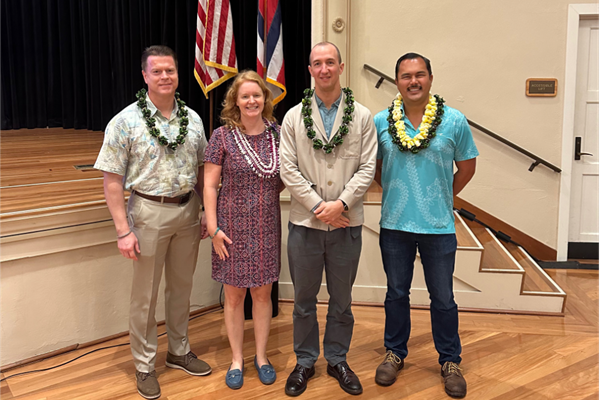Acclaimed journalist spotlights parking woes and solutions
May 28, 2024

One of the few things most people can agree on is our love/hate relationship with parking. Finding the perfectly sized stall right where you need it can elevate your mood in an instant. On the flip side, not being able to find parking due to lack of space, time or convenience can ruin your day. Most folks want “perfect” parking — free, accessible, and convenient.
Pursuit of the perfect parking space is not only frustrating, but the pursuit of it over all other community desires can be devastating. It can also worsen traffic, increase housing costs, endanger people walking, accelerate global warming, and drive us to distraction, according to award-winning journalist and Harvard planning fellow Henry Grabar. Author of Paved Paradise: How Parking Explains the World (Penguin, 2023), Grabar is also a staff writer at Slate and a Loeb Fellow at the Harvard Graduate School of Design, and his work has been published in The Atlantic, The Guardian, Harper’s, and The Wall Street Journal.
Earlier this month, Grabar shared his insights at community events in Hilo, Lihue, and Honolulu. He was also the featured guest at the Better Tomorrow Speaker Series at the University of Hawai‘i at Mānoa (Ulupono Initiative is a series sponsor).
“Parking policies are the hidden and yet very visible influence on what our cities, communities, and homes look like and how they function. We were so fortunate to be able to bring Henry to Hawai‘i and elevate the conversation, showing how parking impacts not only space on our streets, but also our housing costs, our stormwater management and increased flooding, and the viability of our transportation choices,” said Kathleen Rooney, Ulupono Initiative director of transportation policy and programs. “Participants across the islands were appreciative to learn more about how parking policies affect their lives and impede affordable housing, improved climate resilience, and healthier communities. They were inspired about the solutions he presented and were hopeful that some of them could be used here.”
Grabar said there are three circles of parking reform, and Ulupono has expanded upon his thoughts on how these apply or work in Hawai‘i:
- Build less unnecessary parking — In 2020, the Honolulu City Council passed Bill 2 (now Ordinance 20-41) that eliminated costly parking mandates for future developments in parts of Urban Honolulu, allowing housing developers to dedicate space for more infrastructure. But these mandates still exist on our neighboring island communities. For example, as the rebuilding of Lahaina ensues, every development will essentially have to provide 2 spaces for use. Therefore, 1,000 new homes will also yield 2,000 new parking spaces. This may be okay if it is for single-family homes, but could be problematic if we’d like to have more housing choices, such as duplexes or other apartment-style options.
- Use excess parking — Using public street parking for other options past private car storage or converting areas such as garages into an accessory dwelling unit, or ADU, that can be used as a living space.
- Change behavior — Promoting a more multimodal lifestyle, such as supporting our current users of public transit, bike lanes, pedestrian and creating bus-only lanes on busy streets. More than 30% of Hawai‘i residents commute via non-single occupancy vehicles or work from home, illustrating the changes we’ve seen in people’s travel patterns since the pandemic. We deserve a system with choices.
Grabar explained that across the country, many neighborhoods and cities are looking at putting parking lanes and lots to better use. As he told Hawai‘i Public Radio, “If you want to think about how we can make a city a better place to live, build public space, build bike lanes, bus lanes, stormwater infrastructure, plant trees, all that stuff, you have to consider this parking lane as maybe just terrain that shouldn't just be reserved for storing cars.” (Click here to listen to the full story.)

